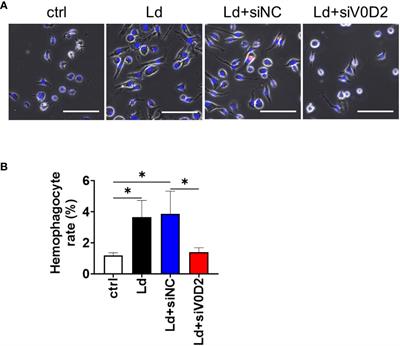ORIGINAL RESEARCH
Published on 21 Nov 2024
Integrated analysis of lncRNA and mRNA expression profiles in cutaneous leishmaniasis lesions caused by Leishmania tropica
doi 10.3389/fcimb.2024.1416925
- 990 views
686
Total downloads
4,380
Total views and downloads
You will be redirected to our submission process.
ORIGINAL RESEARCH
Published on 21 Nov 2024
BRIEF RESEARCH REPORT
Published on 31 Jan 2024


Manuscripts can be submitted to this Research Topic via the main journal or any other participating journal.
You will be redirected to our submission process.